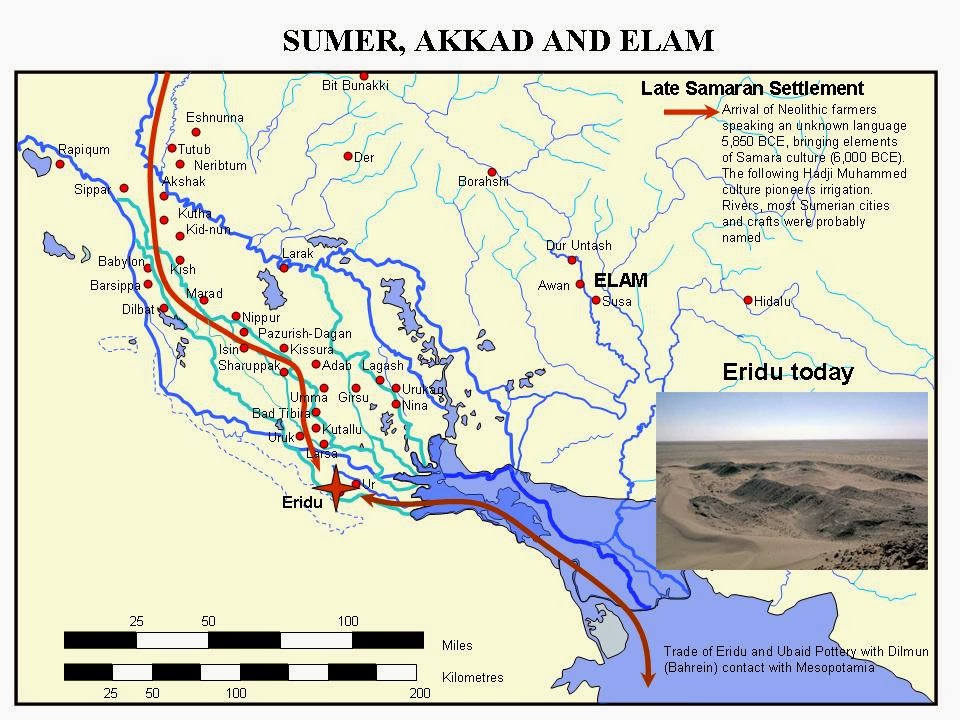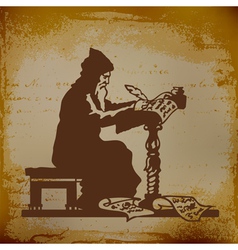The world inherits the many failed standards of Cain.
The last phrase of Gen. 4.13, “anyone who meets me will kill me,” poses quite a problem. Who, indeed, can these ‘anyone’s’ be? One more accepted or modern analysis by orthodox biblical scholars infers that the sons of Adam would be willing to kill Cain for his grievous insult to the family and humanity. Since murder is not acceptable to God, and this would initiate a revenge killing, this viewpoint is not favorable to the overall biblical perspective.
The second view is that the ‘they’ refers to other human beings, but humans who may know nothing about God. We know these people cannot be Cain’s siblings, for Cain will no longer live in Eden. The existence of pre-adamites seems clear from this scripture. We find the pre-adamites as godless or perhaps nature worshippers. As we continue, apparently God agrees with Cain on this point concerning the term ‘anyone,’ for, in v. 15, The Lord said to him, “I promise if anyone* kills Cain, sevenfold vengeance (seven generations) shall be taken on him.”
*Why not just say, ‘My brothers will kill me’? The above view would suppose that the Garden (abundance) is separated out from the rest of the world and that Adam is more created as a spiritual being who rises above the already existent common man, and further, that an earlier development of man had already been attempted, or had developed. This viewpoint is not the orthodox Christian or biblical literalists’ viewpoint.
Cain is sent away. The unenlightened human race now awaits the wrathful Cain.
Cain’s new life begins within a society lacking a developed culture. Here, he takes a wife, although Josephus says he took his wife (sister) with him. Nonetheless, he probably lives among people whose assets are few, almost certainly living in a more neglected condition. Cain is sentenced to wander (=Nod) but is not yet a part of a more organized nomadic culture. He and his family will not dwell in the nearby garden environs. For a time, they will live hardscrabble. Cain would later enter into primitive nomadic culture and eventually build a city.
God lays a mark upon him to give a final settlement on Cain so no one will even attempt to kill him. Finally, in v. 16, “Cain left the presence of the Lord and settled in the land of Nod, east of Eden.”
The City Cain Builds
In chapter 4, verse 17, we begin a whole new story. “Cain knew his wife, and she conceived and bore Enoch. And he then founded a city, and named the city after his son Enoch.” Cain founded what biblical scholars reference as the city of Eridu (Enoch). However, there is much left unsaid in the above scripture. Josephus supplies a broader treatise on Cain and his activities.

Josephus tells us that Cain does not “…accept his punishment to amendment, but to increase his wickedness,” and that he procured for his own “…bodily pleasure, though it obliged him to be injurious to his neighbors. He augmented his household substance with much wealth, by rapine and violence” (Ant. 1.2.2). Just as Cain perceived himself as ‘gaining’ when he killed his brother, Cain abuses his neighbors to gain according to his lust, and “…became a great leader of men into wicked courses.” Cain gained great wealth by pillaging and subduing the land, a world we inherit even today.
Next, Josephus makes a curious statement: “He also introduced a change in that way of simplicity wherein men lived before, and was the author of measures and weights.” Why would simplicity and weights and measures be contrasted in the same sentence? Would not weights and measures be simplicity itself? What does all of this mean?
Cain builds the first walled city*, but not as a convenience nor to keep the wind out of his camp. He constructs the city to protect his loot. Boundaries on conquered lands are measured therein to tax according to the yield. Cain does not develop weights as a standard for commerce so much as to weigh metals, grain, and other produce to give ‘measure and weight’ to his wealth. Essentially, Cain is represented as establishing the first government, and he is not about doing good. In other words, weights and measures are inserted into this world after an unrighteous reason and not to assist humankind, except to assist Cain. Commerce had changed, and men changed with it.
*Josephus names the city as Nod.
Weights and Measures

Mankind has entered a new world of complexity at the behest of the corrupted Cain. Cain’s mind now bends toward acquiring and pursuing gain, accumulating wealth, by evil means. “And whereas they (the populace) lived innocently and generously while they knew nothing of such arts, he changed the world into cunning craftiness.” Josephus describes the altered tribal society. Where once we had a peaceful and pastoral society, we now have a society scouring to garner wealth, a society consumed by gain.
The world is soon pillaged by Cain and by his craftiness. The people naturally rectify circumstances as they may. Or, much like Cain, they
rectify conditions as they see fit. Craftiness and slyness take the place of fairness, and being crafty is now considered fair bargaining. Instead of producing goods, a certain segment of the population makes money only through this crafty trading mechanism. The intent is carved out of the fallen intellect of man, and in particular, Cain, and leads to the distraction (sin) determined as the love of money, as opposed to the love of God.
This shift in consciousness begins to move across the planet like a storm. Godly standards cringe under the unremitting ethos of ‘gain’, understood today as greed. It is not the making of the wealth; it is determined by the attitudes and standards by which the wealth is assumed. The implementation of weights and measures does not become the kind of broader success or accomplishment many of us would envision. Counting, measuring, numbering, and categorizing may free man by the ease of use, but weights and measures may also be used to extract a cruel toll. For Cain and his progeny, and others also followed, the toll extracted for such gain will include murder, taking slaves, harnessing women, and theft. The destruction of other cities must be included, entailing arson and random killing.
Beforehand, commerce was person-to-person, with needs supplied fairly simply and directly. Each man or woman adhered to local standards. Other forms of trade could be depended upon as a matter of good faith, for each person was directly involved in each transaction. Although this way of doing business may seem rudimentary, it accessed a certain kind of honesty, an attribute that should be valued in soul development. People were required to treat each other with a kindred spirit, and a certain faith had to be maintained, at least in the broader sense. Weights and measures take the place of these soul-enhancing personal exchanges. The bend toward accumulation begins to consume the elements of trade.
Cain is also an archetype, essentially creating what we know today as the modern world. Cities are built (architecture). Metallurgy enters the scene. Coordinated civilization is introduced, but even so, this civilizing influence is at the behest of Cain’s darkened mind. These pagan civilizations will war against each other and war against God’s plan. Pantheons of gods will later be created in ignorance and put before the people. Worshippers of the One True God will become few and often isolated.
The need to quantify acquired wealth, stolen wealth in the case of Cain, would become helpful in Cain’s unbending pursuit of grandeur, status, and power. With this change in trading practice, all people would now be ‘measured’ by the same standards—the standards initiated by Cain. It is in this manner the world has followed, however one may perceive and judge the results.
*The more conservative elements within Judaism forbade usury. Essentially, usury became a debt trap.
The method of thinking and writing in ancient times often leaves unspoken intent for the reader to discover. While reading scripture, it is sometimes helpful to ponder what is not said or mentioned. If we take scripture as written, “And then he founded a city, and named the city after his son Enoch,” we must ask, where did Cain assemble the where and withal to become prosperous, much less build a city? The city seems accomplished by ‘measures’ or measured out, but the need for city walls derives from accumulated booty extracted by terror and theft. The principle of wealth assumed by any means is now loosed upon the world.
Believe it or not, Cain still has the remnants of a godly mind. Adam and Eve left the Garden with certain lessons learned. The Garden experience and experiential knowledge assumed by Adam and Eve outside the Garden were passed down to Cain and Abel. Later, these understandings pass on to Seth and from Seth to his son Enosh, leaving us with the thought that Cain’s mind is much more powerful than those around him. Cain possesses the knowledge imparted by Adam and Eve and would necessarily have a cognitive ability others lack. In a sense, Cain was one step away from the original mold, and those now around him cannot make such a claim. However, he bends the creation power of knowledge and the intuitive grasp of matters toward evil.
The outcome is that the populous might benefit but would not be exalted amidst the rapid exercise of chaos. We assume they are pagans. The enlightened understanding remains distant from the general populace. Until Cain’s arrival, Josephus tells us they lived in peace. It may not have been a perfect peace, without squabbles or fights, but God intends for intercourse between peoples to stay content. Even so, a whole new worldview has now been initiated upon the earth, not godly but born out of a corrupted mind and its machinations.
 Cain’s misdirected consciousness thrusts him into the role of Destroyer,
Cain’s misdirected consciousness thrusts him into the role of Destroyer,
and quite the opposite of the latter Deliverer, Jesus.
Within the story, Cain becomes the first true conquerer, and by his conniving ways, whether by building walls or using measures, he enslaves the people and personifies the first dictator, the first city-state king, who taxes by measures and weights. Because of his expanded knowledge and being inserted into the pagan world, he may have eventually ascended to priest-king status. How many historical figures have we noted as following the same route?

God Bless!
Freemasonry teaches that Cain was the author of weights and measures.
Weights and measures are not the issue, but rather how they were used, which was to tax!
Hiya, I am really glad I have found this info. Nowadays bloggers publish only about gossips and web and this is really annoying. A good blog with interesting content, this is what I need. Thanks for keeping this site, I’ll be visiting it. Do you do newsletters? Can not find it.
Thanks Rusak,
No newsletter planned yet, but maybe. Am currently moving and reorganizing, look for much more later, probably later October or November.
C. Ray
There’s noticeably a bundle to learn about this. I assume you made certain good points in options also.
Excellent post. I was checking continuously this blog and I am impressed! Very helpful information specially the last part I care for such info a lot. I was looking for this particular information for a very long time. Thank you and best of luck.
I care for such info a lot. I was looking for this particular information for a very long time. Thank you and best of luck.